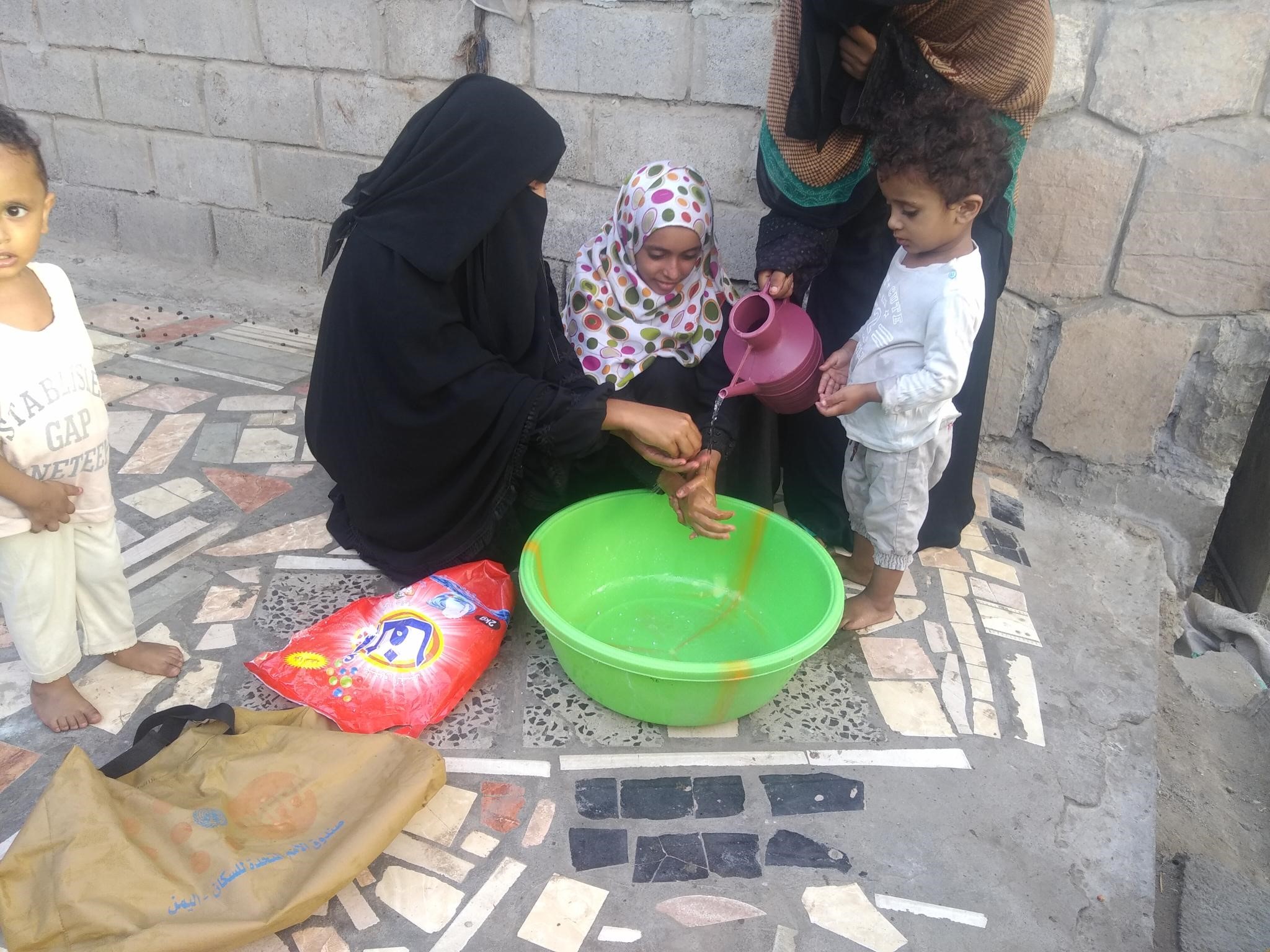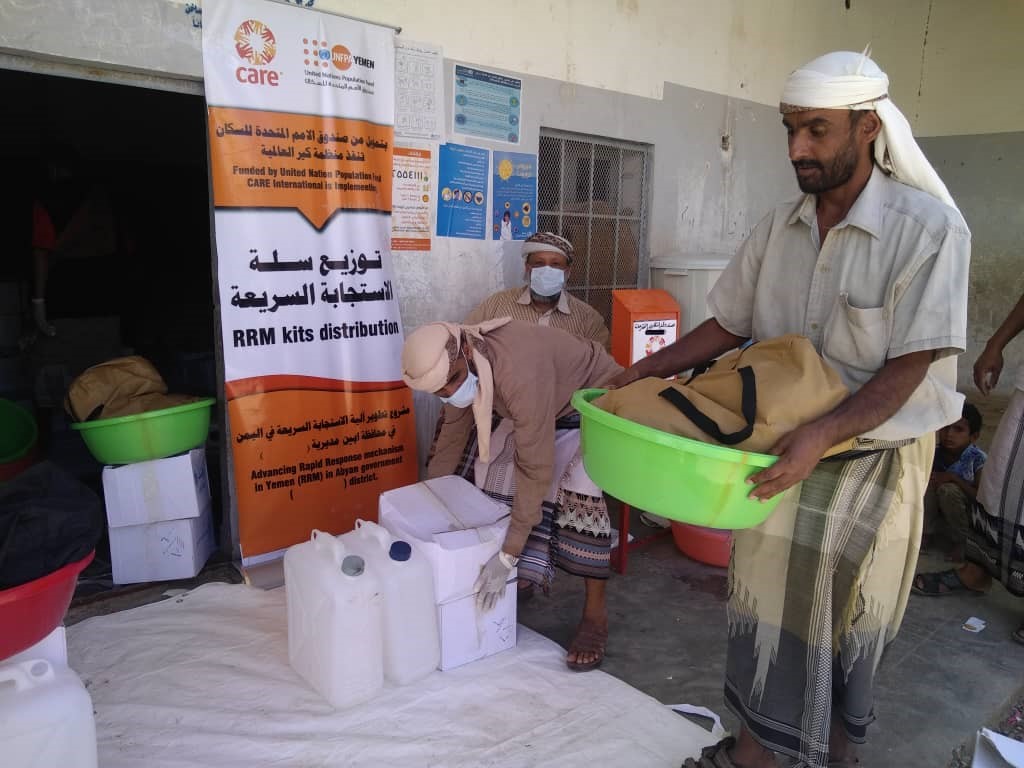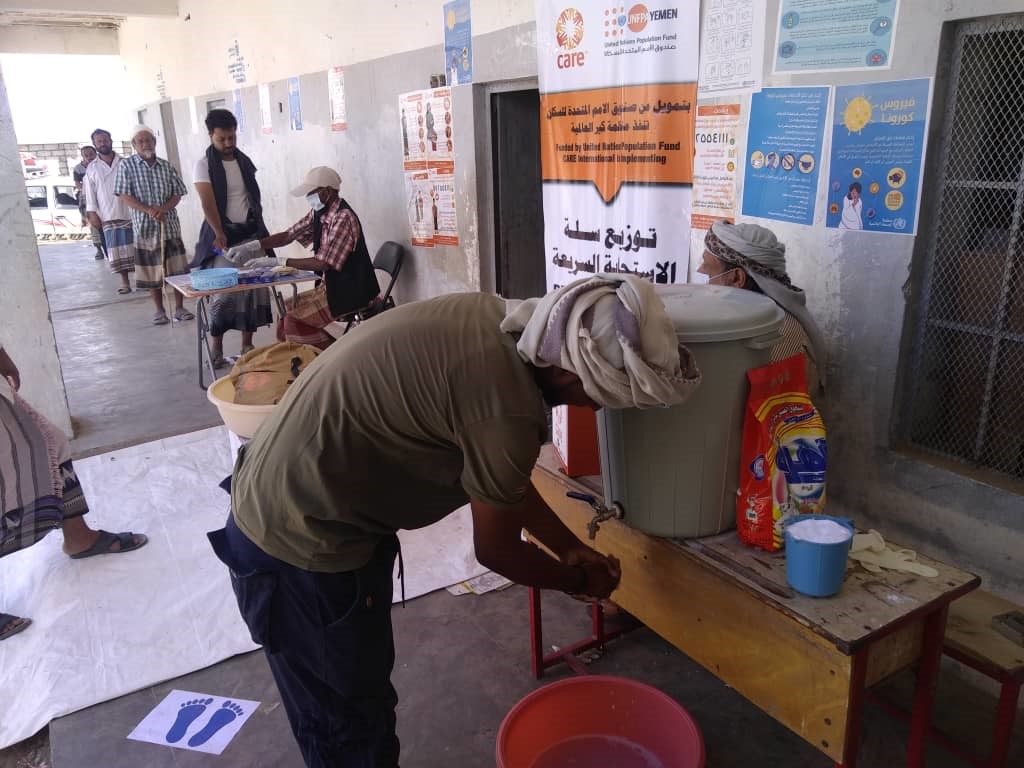The armed conflict in Yemen continues to take a severe toll on civilians, including women and children. Since 2015, a total of 3.6 million Yemenis have been internally displaced, of whom at least 75% are women and children. Displaced women and girls suffer from poor shelter options and limited access to basic services, which threatens their safety and wellbeing.
Since the beginning of 2020, the country has had an upsurge in cholera cases as well as dengue fever, chikungunya, malaria, and coronavirus cases. The impact of the conflict and health crisis combined with seasonal rains and flash floods has intensified the suffering of displaced families who live in temporary and very basic settlements.
Asia Abdo, a mother of two, fled her home after the eruption of a new wave of violence in Al Hudaydah governorate. “I lost everything when the fighting broke out,” she says. “The war took everything.”
After a hard journey, Asia and her family reached Abyan governorate. They were exhausted, frightened, and empty-handed. The family settled in a collective shelter, sharing a small space with five families who has also been forced to flee their hometowns.
Shortly after settling in Abyan, Asia’s husband Ibrahim started to work as a labourer in the farms. He spends twelve hours working hard to collect crops and deliver them to the city market. Ibrahim feels sad and unsatisfied as he reminisces about his old home and stable business. Nowadays, he makes less than two dollars a day, which is a very small amount given the time and effort he devotes, but it’s the only way to help the family.


